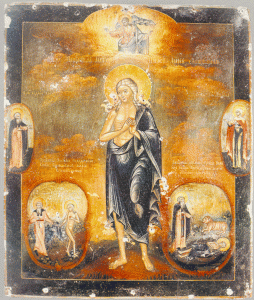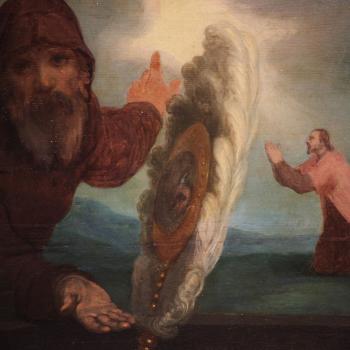
It is way too easy to judge and condemn others. We can see, for example, a prostitute on the street and think that it is sad she had to become a prostitute to survive. We might even try to help her in some way, even as we look down upon her, think poorly of her and condemn her in our minds. It is easy for us to do so, ignoring that, due to our circumstances, and our situation, we are spiritually worse off than she is. This is why Jesus warned us time and time again not to make such a judgment, because in the end, we tend to ignore our own spiritual situation and so, not only end up being a hypocrite, but end up creating the conditions necessary for our own condemnation. It is often our pride which makes us look down upon others in this way; we are so self-absorbed, we think ourselves to be so great, we lose sight of how far off we are from the holiness and perfection God wants from us. We do not want others to judge us, but we will be quick to judge others, judging them on the way things appear to us instead of that which is hidden from us, their true disposition and moral character. If we are not careful, we will end up judging someone who is as close to sainthood as being a great sinner because often great sinners are great saints in the making. They have great spiritual potential, a potential which they are able to fulfill when they find themselves liberated from what keeps them in sin. This was the case with St. Mary of Egypt. Many, if they met her in your youth, when she was surviving on the streets, making her way as a prostitute, they would not have seen the potential within, and so they would have easily judged and condemned her and thought nothing else about her. And yet, there was something special with Mary – she was always seeking for what she did not have, for the love which she did not experience. From what we are told about her, it is possible to read into her actions that she was more than willing to share what love she had with others, caring for them, giving of herself to them, even if they did not care for her. It was that desire which had her, in many instances, reach out to men and let them do as they wished with her without asking them to pay for her services; it was this desire, moreover, which can be said which led her back to God, finding the love and dignity which she had been denied by society, indeed, been denied by the would-be pious of the world.
Mary, in her attitude towards others, in her search for meaning, in her search for love and dignity, finally found it with God. Eventually, she made her way to the Egyptian desert so as to leave society and its ways behind so that she can constantly enjoy the love which God gave her and others had denied her. She was always a great woman, and it is this greatness which God set free, allowing her to be in reality what so many, in their pride, believed themselves to be.
The desire to follow after mere appearances, to judge and treat people based upon them, was what led many, including many of Jesus’ disciples, to fight amongst themselves as they all wanted to be seen as greater than the rest. When James and John asked Jesus to elevate them and honor them by having them reign by his side so they could be deemed greater than any other of Jesus’ s disciples, Jesus responded in his typical fashion by telling them that they should not seek to be great in such a way, that is, in the way greatness was viewed by the world; instead, he told them that if they wanted to be great, they must act as he acted, to live their lives serving others out of pure love:
And Jesus called them to him and said to them, “You know that those who are supposed to rule over the Gentiles lord it over them, and their great men exercise authority over them. But it shall not be so among you; but whoever would be great among you must be your servant, and whoever would be first among you must be slave of all. For the Son of man also came not to be served but to serve, and to give his life as a ransom for many” (Mk. 10:42-45 RSV).
Mary of Egypt did not seek to lord it over anyone. She reached out to others, hoping to receive their love, if not their respect, but sadly, until God set her free, all she got was people using and abusing her in one fashion or another. Time and time again she experienced people casting her aside as soon as they got what they wanted out of her. And yet, she took it, because she yearned so much for love, and the contact which love can bring, she willingly gave herself to others, giving to them of herself, hoping she would receive something similar back from those she was with. This is why, though we can talk about the defective way she went about this, we can also point out she lived her life in a way which opened her up to God and God’s ways. This is why Jesus was able to take that good in her, the love she had, and perfect it, taking it out of its bad context and putting it into a new one, one which allowed it, and Mary, to flourish. She was poor in spirit all her life; her humility clothed her and made her spiritually beautiful, and so the words of Jesus, who said the poor, and the poor in spirit, will be blessed, can be seen fulfilled in her:
They are “poor in spirit” because they are not puffed up with the devil’s pride nor with any swelling of evil, but they maintain humility of spirit with faith. And certainly they are “poor in spirit” because they keep themselves away from worldly riches, from the desire of the world, from all earthly flesh. The Lord shows that these people are blessed in this manner when he says, “Blessed are the poor in spirit, for yours is the kingdom of heaven.” In respect to the world those who are like this seem poor, but they are rich in God. [1]
Mary, even as a prostitute, was far more loving, far closer to possessing the kind of character and holiness God wanted from her, than those who would have judged and condemned her if they saw her on the streets. She was humble, even as a prostitute. That humility did her good, so that, unlike those who looked down upon her with their judgment, she could find God welcoming her, allowing her to see and understand her true dignity, an understanding which would help set her free. Then, with God’s love and grace, she was able to fulfill the potential within her, the potential which, if people cared for her instead of used her, they would have seen.
[1] St. Chromatius of Aquileia, Sermons and Tractates on Matthew. Trans. Thomas P. Scheck (New York: Newman Press, 2018), 32 [Sermon 5].
Stay in touch! Like A Little Bit of Nothing on Facebook.
If you liked what you read, please consider sharing it with your friends and family!
N.B.: While I read comments to moderate them, I rarely respond to them. If I don’t respond to your comment directly, don’t assume I am unthankful for it. I appreciate it. But I want readers to feel free to ask questions, and hopefully, dialogue with each other. I have shared what I wanted to say, though some responses will get a brief reply by me, or, if I find it interesting and something I can engage fully, as the foundation for another post. I have had many posts inspired or improved upon thanks to my readers.
















